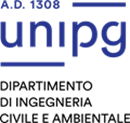Study-unit GENERAL PHYSICS
| Course name | Building engineering and architecture |
|---|---|
| Study-unit Code | GP004886 |
| Curriculum | Comune a tutti i curricula |
| Lecturer | Emanuele Fiandrini |
| CFU | 8 |
| Course Regulation | Coorte 2021 |
| Supplied | 2021/22 |
| Supplied other course regulation | |
| Type of study-unit | Obbligatorio (Required) |
| Type of learning activities | Attività formativa integrata |
| Partition |
PHYSICS I
| Code | GP004892 |
|---|---|
| CFU | 5 |
| Lecturer | Emanuele Fiandrini |
| Lecturers |
|
| Hours |
|
| Learning activities | Base |
| Area | Discipline fisico-tecniche ed impiantistiche per l'architettura |
| Sector | FIS/01 |
| Type of study-unit | Obbligatorio (Required) |
| Language of instruction | Italian (English on demand) |
| Contents | Physical quantities and units of measurements. Scalar and vector quantities, notions of vector calculus. Mono and bidimensional kinematics. Newton's laws and their applications. Work and Kinetic Energy. Potential energy and conservation of mechanical energy. Momentum and shocks. Rotational motions. Rigid body dynamics. Center of mass and rolling motion. Simple harmonic oscillator. Fluid. Introduction to thermodynamics. |
| Reference texts | Halliday-Resnick, "Fundamentals of Physics" Jewett-Serway, "PRINCIPI DI FISICA" EdiSES (english version available) |
| Educational objectives | Understanding the fundamental principles of mechanics. Ability to apply theoretical knowledge in solving simple problems on the topics covered in the course. |
| Prerequisites | Scientific notation. Multiple and sub-multiples of the units of measurement. Equivalencies. Basic notions of vector algebra. Trigonometry. Function study. Basic notions of differential and integral calculus. Euclidean geometry. Analytic geometry. |
| Teaching methods | Lessons and exercises on all the topics of the course. |
| Learning verification modality | The verification of the educational objectives of the Physics education involves passing a compulsory written test, which requires the solution of 3 open-ended problems on the topics covered in the Physics 1 and Physics 2 module (the exam is joint) to be performed in 2 hours, and an optional oral exam for those students who, having passed the written test with a mark higher than 18/30, wish to improve the evaluation. The tests aim to verify: i) the ability to understand the problems proposed during the course, ii) the ability to correctly apply the theoretical knowledge (Dublin descriptor 2), iii) the ability to formulate observations independently of judgment appropriate on possible modeling alternatives (Dublin descriptor 3), iv) the ability to communicate effectively and pertinently in written form (Dublin 4). |
| Extended program | KINEMATICS OF THE MATERIAL POINT Rectilinear motion, speed of rectilinear motion, acceleration in rectilinear motion, vertical motion of the body, simple harmonic motion, rectilinear motion exponentially paid out, speed and acceleration as a function of position. Motion in the plane: position and velocity, acceleration in the plane, circular motion, parabolic motion of bodies, motion in space, rectilinear relative motion in the plane. READ NEWTON AND THEIR APPLICATIONS TO POINT DYNAMICS Inertia principle. Newton's laws. Resultant of forces and balance. Supporting reactions. Classification of forces. Dynamic force action. Force weight. Friction force: static, dynamic, viscous. Inclined plane. Elastic forces. Introduction to the simple harmonic oscillator. Centripetal Force. Motion of a material point that runs through a plane and elevated curve in the absence and presence of friction. Thread tension. Simple pendulum and simple harmonic oscillator. DYNAMICS OF THE MATERIAL POINT Momentum and impulse. Work. Power. Kinetic energy. Work of the weight force. Work of an elastic force. Work of a sliding friction force. Conservative forces. Potential energy. Conservation of mechanical energy. Conservation of momentum. Collisions between two bodies, conservation laws. Elastic and inelastic collisions. Newtoninan gravitation. KINEMATICS AND DYNAMICS OF MATERIAL POINT SYSTEMS Relative motions. Inertial and non-inertial reference systems. Point systems. Internal force and external forces. Center of mass. Center of mass motion theorem. Conservation of momentum. Angular momentum theorem. Preservation of angular momentum. Center of mass reference system. Koenig theorems. STATIC AND DYNAMIC OF RIGID AND EXTENDED BODIES Properties of a rigid body. Continuous body. Density and position of the center of mass. Motion of a rigid body. Rigid rotations around a fixed axis in an inertial reference system. Moment of inertia. Huygen-Steiner theorem. Conservation laws in the motion of a rigid body. Static equilibrium of the rigid body. Pure rolling motion. Torsion pendulum and outline of the elastic properties of solids. INTRODUCTION TO FLUID DYNAMICS Fluids. Pressure. Static equilibrium of a fluid. Principle of Archimedes. Stevino's law Viscosity and viscous friction. Ideal fluid. Stationary regime. Capacity. Bernoulli's theorem. Outline of vortex motion: the Reynolds number. INTRODUCTION TO THERMODYNAMICS Thermodynamic systems and states. Thermodynamic equilibrium. Principle of thermal equilibrium. Temperature and heat. Joule experiments. Adiabatic systems. First law of thermodynamics. Internal energy. Thermodynamic transformations. Work and Heat. Calorimetry. Gas laws. Equation of state of ideal gases. Gas and work transformations. Specific heats. Internal gas energy ideal. PV diagram and PT diagram. Thermodynamic transformations on the Clapeyron plane. Cyclic transformations. Carnot cycle. Real gases. Equation of state. Internal energy and enthalpy. Kinetic theory of gases. Kinetic meaning of temperature. Real gases. Second principle of thermodynamics. Reversibility and irreversibility. Carnot theorem. Absolute temperature. Third principle of thermodynamics. Clausius theorem. Entropy. |
ELECTROMAGNETISM
| Code | GP004893 |
|---|---|
| CFU | 3 |
| Lecturer | Emanuele Fiandrini |
| Lecturers |
|
| Hours |
|
| Learning activities | Base |
| Area | Discipline fisico-tecniche ed impiantistiche per l'architettura |
| Sector | FIS/01 |
| Type of study-unit | Obbligatorio (Required) |


